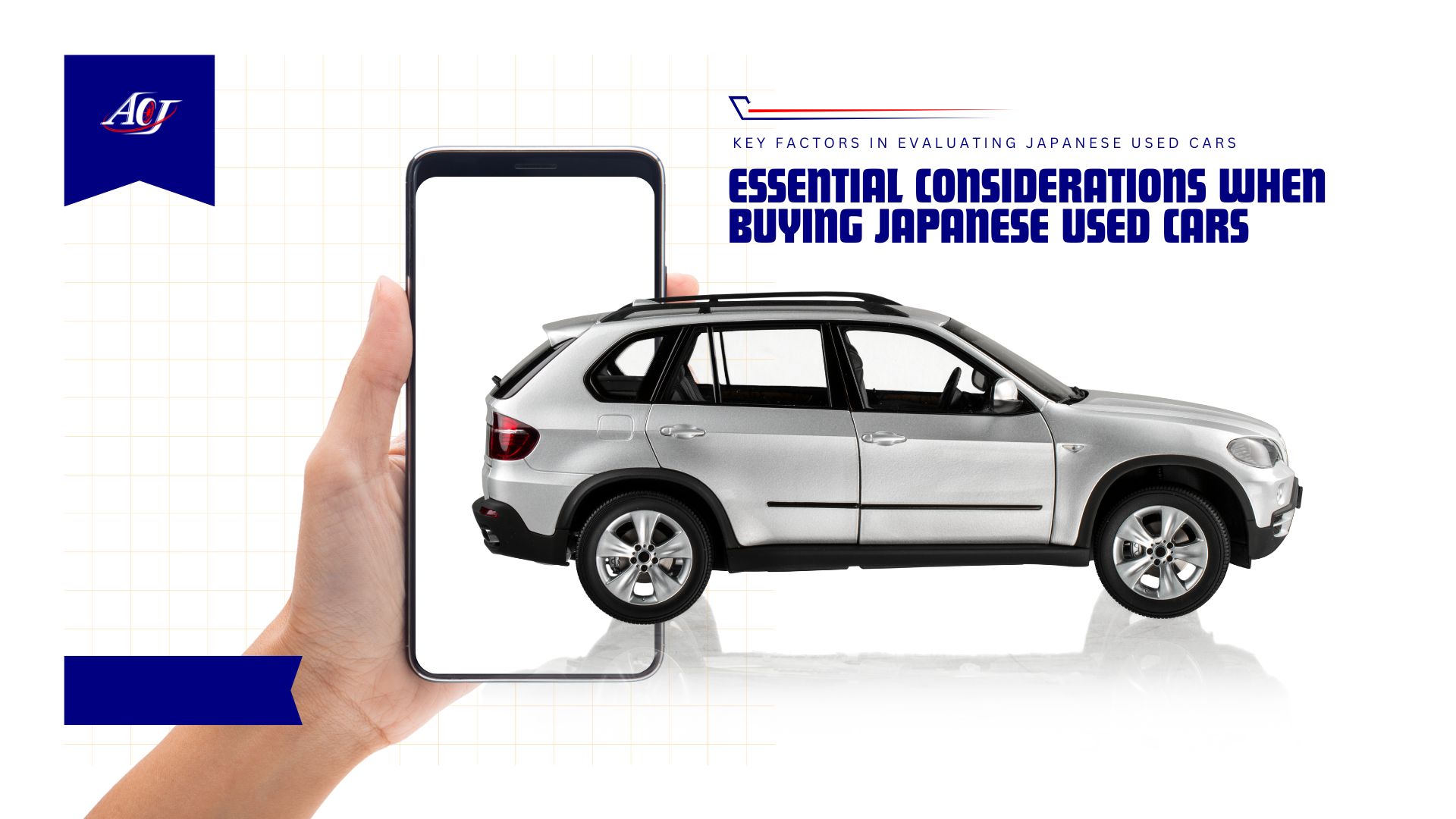
The attraction of Japanese used cars is hard to ignore. These vehicles are affordable, reliable, and known for their fuel efficiency and advanced technology. However, navigating the world of importing Japanese used cars can be a challenging task.
This guide will walk you through the most important factors to consider when purchasing a Japanese used car, ensuring you make an informed decision.
Key Factors in Evaluating Japanese Used Cars
Vehicle History and Documentation
When purchasing a Japanese used car, understanding its history is crucial:
- Inspection Reports: Vehicles from Autocom Japan undergo strict inspections before sale. Ensure you receive a translated copy of the report, paying close attention to accident history, odometer readings, and any mechanical issues.
- Export Certificate: This official document verifies the car’s condition and mileage. Confirm its authenticity and compare it with the inspection report.
- Auction History: Research whether the car was previously used as a rental or taxi, as these vehicles often have higher wear and tear.
Condition and Specifications
Before making a purchase, it’s essential to inspect the car’s condition and specifications:
- Exterior and Interior: Look for any signs of damage, rust, or wear on both the car’s body and upholstery. Check that all lights, mirrors, and interior features function correctly.
- Engine and Transmission: Listen for any strange noises or vibrations. Request a test drive to evaluate the engine’s performance, transmission responsiveness, and braking system.
- Mileage and Age: While low mileage is generally preferred, an older vehicle with a strong maintenance record may be a better choice than a newer car with questionable service history.
Navigating the Import Process
Import Regulations and Documentation
To successfully import your car, you must familiarize yourself with the necessary procedures:
- Import Laws: Every country has specific rules on vehicle imports, such as age restrictions and emission standards. Clarify these regulations early in the process.
- Shipping and Insurance: Choose a reliable shipping partner through Autocom Japan and secure full insurance to protect your vehicle during transit.
- Taxes and Duties: Be aware of any import taxes and duties that may apply to your vehicle. These costs can vary depending on the car’s value and country of origin.
Budgeting and Financial Planning
Purchasing a car from Japan requires careful financial planning:
- Set a Budget: Calculate all expenses, including the car’s price, shipping fees, taxes, and registration costs. Avoid stretching beyond your financial limits.
- Hidden Costs: Prepare for additional costs like shipping delays or post-delivery repairs.
- Financing Options: Explore financing through banks or car import companies, comparing interest rates and repayment terms.
Additional Considerations for a Smooth Purchase
Warranty and Service
To ensure a long-lasting, trouble-free experience, consider warranty and service options:
- Extended Warranty: For extra peace of mind, particularly for older cars, consider purchasing an extended warranty.
- Authorized Service Centers: Ensure you have access to approved service centers that can maintain your vehicle using genuine parts.
Local Support and Car Enthusiast Communities
Getting involved with local communities can enrich your ownership experience:
- Online Forums: Join forums and groups to learn from others who have purchased Japanese used cars. Their experiences can provide valuable insights.
- Car Clubs and Events: Attend local car meets to connect with fellow enthusiasts and gain firsthand knowledge of the car models you’re interested in.
Pre-Purchase Inspection
Before finalizing your purchase, it’s wise to invest in a thorough inspection:
- Professional Inspection: Have a qualified mechanic familiar with Japanese imports examine the car to uncover any hidden issues, such as frame damage or engine trouble.
- Negotiation Leverage: Use the inspection report to negotiate the car’s final price. Highlight any concerns as a basis for requesting a discount.

